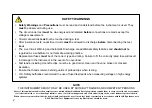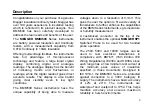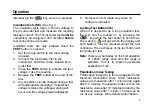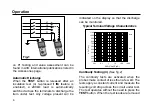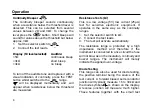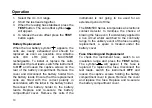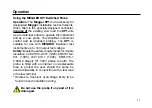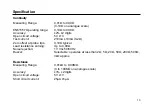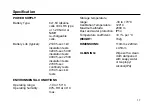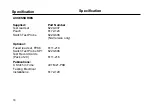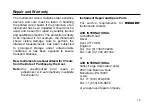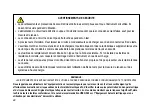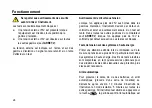
Operation
1. Select the d.c. mV range.
2. Short the test leads together.
3. When the reading has stabilised, press the
TEST
button. The zero offset symbol
will appear.
4. To release the zero offset press the
TEST
button again.
Battery Replacement
When the low battery symbol
appears, the
cells are nearly exhausted and should be
replaced as soon as possible. Use Alkaline
cells IEC LR6 (AA) or NiCd/NiMH
rechargeable. To install or replace the cells,
disconnect the test leads, switch the instrument
to
OFF
and loosen the captive screws on the
rear of the battery compartment. Remove the
cover and disconnect the battery holder from
the battery leads. Ensure that the replacement
cells are fitted with the correct polarity in
accordance with the label in the battery holder.
Reconnect the battery holder to the battery
leads. Replace and re-secure the battery
compartment cover. Remove the cells if the
instrument is not going to be used for an
extended period of time.
The BMM500 Series incorporates an electronic
contact detector to minimise the chance of
blowing the fuse even if accidentally applied to
a live circuit whilst switched to the continuity
range. In the unlikely event of the fuse needing
replacement, a spare is located under the
battery cover.
Fuse Checking and Replacement
To check the instrument fuse, switch to an
insulation range and press the
TEST
button.
The symbol
will appear if the fuse is
ruptured. To replace the fuse, disconnect the
test leads, switch the instrument
OFF
and
loosen the captive screws holding the battery
compartment cover in place. Remove the cover
and replace the fuse. Replace and re-secure
the battery compartment cover.
10
Summary of Contents for BMM500 Series
Page 3: ......
Page 81: ...Notes 78...
Page 82: ...Notes 79...
Page 83: ...Notes 80...
Page 84: ......





